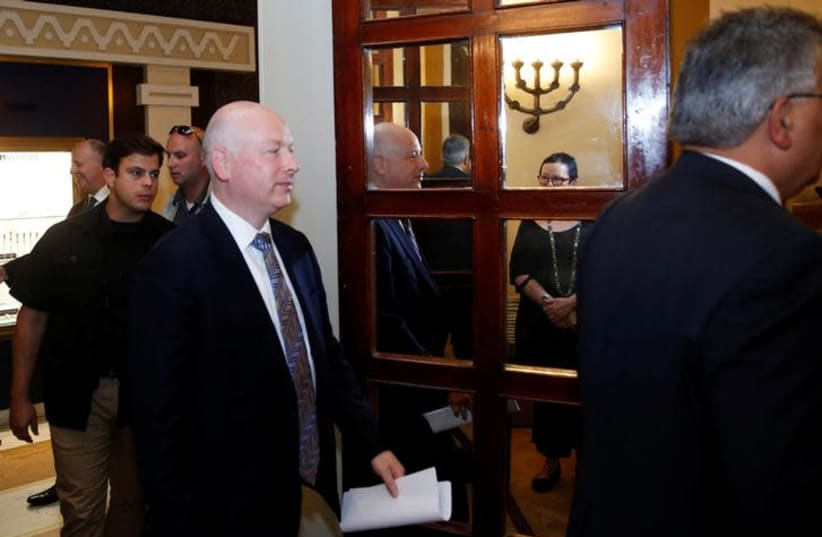A Related Video You May Like:
Greenblatt boasted that under the Trump administration, relations between the Jewish state and Washington “are stronger than ever,” crediting Trump’s “recognition of Jerusalem as Israel’s capital” as a key factor in solidifying an unshakable trust between the two nations.Greenblatt, who severed as the Trump Organization’s chief legal counsel before joining the administration, said he is encouraged about the prospects for peace after traveling across the region and finding commonality of interests to reach a negotiated peace to the conflict.“As people of faith, we have a better understanding of each other,” he said.Greenblatt also touched on the threat Iran poses to the region, saying that “America looks forward to the day when we can restore our historical friendship with the Iranian people. They don’t want a government that squanders its resources on regional adventures.”But as long as religious tyrants head the Islamic Republic, Iran will remain the “source of instability in the region.”He also criticized the Palestinian Authority’s continued support of terrorism, namely its “pay for slay” policy, which provides financial support to the families of imprisoned terrorists.“You can’t make peace in an environment where violence is practiced and celebrated,” said the 51-year-old father of six.He pointed out that the Taylor Force Act, which AJC supported, “dramatically reduces US funds to the Palestinian Authority until they stop the abhorrent practice of paying stipends to terrorists and their families.”Speaking of what can be possible in an atmosphere that may appear to be lacking in hope, Greenblatt mentioned his visit to the Galilee Medical Center, where several thousand Syrians severely injured in their country’s civil war have been treated in Israel.Dr. Masad Barhoum, Galilee Medical Center director-general, Greenblatt noted, was honored by the AJC Women’s Leadership Board last year.“I’ve seen the wonder in the eyes of Syrian parents when they realize Israelis don’t want to kill them, but to help them,” he said.“If one can find hope in something as terrible as the war in Syria, imagine what can happen with a lasting peace between Israel and the Palestinians,” Greenblatt added.
Trump’s Mideast envoy Greenblatt signals hope of lasting peace
Greenblatt boasted that under the Trump administration, relations between the Jewish state and Washington “are stronger than ever.”
